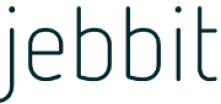Description

Retail Rocket

Jebbit
Comprehensive Overview: Retail Rocket vs Jebbit
Retail Rocket and Jebbit are two platforms with distinctive offerings and target markets in the digital marketing and personalization domain. Here's a comprehensive overview of each:
Retail Rocket
a) Primary Functions and Target Markets
- Primary Functions: Retail Rocket is a recommendation engine and personalized marketing automation platform. It primarily focuses on providing highly personalized product recommendations, behavioral targeting, and email marketing automation for e-commerce businesses.
- Target Markets: Its target market is primarily online retailers and e-commerce businesses looking to enhance the customer shopping experience and boost sales through personalization. It caters mainly to medium to large-scale online stores that want to leverage customer data for improved engagement and conversion rates.
b) Market Share and User Base
- Retail Rocket holds a strong position in markets where dynamic and personalized customer engagement is key—mainly in Europe and emerging markets. The platform is used by numerous e-commerce sites, but exact figures on its user base and precise market share are not typically disclosed publicly. Nonetheless, its presence in the market is notable among businesses prioritizing personalization.
c) Key Differentiating Factors
- Personalization: Retail Rocket focuses heavily on AI-driven personalization, offering a robust recommendation engine that tailors product suggestions based on user behavior and historical data.
- Integration and Usability: It integrates seamlessly with various e-commerce platforms and requires minimal technical input from the user’s side, making it accessible for businesses without extensive IT resources.
- ROI Focus: The platform emphasizes metrics-driven results, optimizing campaigns and recommendations for maximum return on investment.
Jebbit
a) Primary Functions and Target Markets
- Primary Functions: Jebbit is a digital experience platform that specializes in creating interactive content, often referred to as "experiences," which businesses use to engage customers and collect zero-party data. Its tools allow users to build quizzes, polls, and product match experiences that help in understanding customer preferences and driving conversion.
- Target Markets: Jebbit's target market includes brands across various industries looking to enhance customer engagement and data collection strategies. This includes retail, consumer packaged goods (CPG), travel, and other sectors that benefit from deeper consumer insights.
b) Market Share and User Base
- Jebbit has carved out a niche for itself in the market by focusing on interactive content for data-driven marketing. The platform is utilized by brands looking to engage users beyond traditional methods, though specific market share and user base numbers are proprietary. Its focus on zero-party data collection is aligned with market trends prioritizing user consent and privacy.
c) Key Differentiating Factors
- Zero-Party Data Collection: Jebbit's approach to data collection through consumer-driven interactions sets it apart in terms of privacy compliance and the accuracy of consumer insights.
- Interactive Content: Its main differentiator is the ability to create engaging and personalized interactive content easily and quickly, which helps brands capture attention more effectively than traditional static content.
- Customizability and Flexibility: Jebbit allows for high levels of customizability in its interactive experiences, enabling brands to align these tools with their distinct customer engagement strategies and branding needs.
Comparative Analysis
- Market Positioning: Retail Rocket is more focused on enhancing existing customer journeys through personalization, primarily in e-commerce, whereas Jebbit focuses on creating new customer engagement points through interactive experiences.
- Technology Application: Both platforms use technology to increase customer engagement, but Retail Rocket leverages personalization algorithms and email automation, while Jebbit offers tools for directly engaging consumers via interactive mediums.
- Privacy and Data: Jebbit’s zero-party data focus aligns with a growing need for privacy and compliance in the industry, giving it an edge in markets and situations where data consent is imperative.
Overall, both Retail Rocket and Jebbit provide unique value propositions to their respective markets, catering to businesses looking to optimize customer interactions and data usage in different ways.
Contact Info

Year founded :
2012
+31 85 081 4001
Not Available
Netherlands
http://www.linkedin.com/company/retailrocket

Year founded :
2011
+1 508-380-0047
Not Available
United States
http://www.linkedin.com/company/jebbit
Feature Similarity Breakdown: Retail Rocket, Jebbit
To provide a feature similarity breakdown between Retail Rocket and Jebbit, let's examine each of the requested aspects:
a) Core Features in Common
Both Retail Rocket and Jebbit are focused on enhancing customer engagement and personalizing user experiences, though they cater to different primary functions within the marketing and retail sectors.
Common Core Features:
-
Personalization:
- Both platforms offer tools to personalize the customer journey. Retail Rocket uses AI-driven algorithms to deliver personalized product recommendations, while Jebbit creates immersive, personalized digital experiences through interactive content.
-
Data Analytics:
- Both products have robust analytics features to track user engagement and performance metrics. Retail Rocket focuses on tracking online behavior to optimize product recommendations, and Jebbit emphasizes analytics for interactive content performance.
-
Integration Capabilities:
- They allow integration with other platforms like eCommerce systems (Shopify, Magento for Retail Rocket), or CRMs and marketing tools for streamlined operations.
-
A/B Testing:
- Each platform provides A/B testing capabilities to refine experiences and improve conversion rates based on user interaction data.
b) User Interface Comparison
Retail Rocket:
- Dashboard: Focused on eCommerce insights with a clean and data-centric design. Users can easily access product recommendations, analytics, and customer insights.
- Usability: Primarily used by marketing teams needing to manage advertising and recommendations with overarching clarity on conversion metrics.
Jebbit:
- Dashboard: More geared towards creating interactive content, with drag-and-drop functionality that simplifies the creation process.
- Usability: Known for an intuitive interface that allows marketers to build personalized quizzes, surveys, and other content types without needing IT involvement.
c) Unique Features
Retail Rocket:
- AI-Driven Recommendations: Uses advanced machine learning algorithms specifically tuned for retail to deliver precise and dynamic product recommendations.
- Dynamic Retargeting: Offers strong dynamic retargeting features which allow personalized display ads based on user activity.
Jebbit:
- Interactive Content Creation: Stands out with its focus on zero-party data collection through interactive experiences like quizzes, polls, and surveys. This focus is less common among B2B platforms, allowing for creative lead generation and personalized marketing campaigns.
- Zero-Party Data Strategy: Offers tools to effectively capture and leverage zero-party data, where customers willingly share their preferences through interactive content.
In summary, while both Retail Rocket and Jebbit share some core functionalities related to personalization and analytics, their unique strengths lie in Retail Rocket's eCommerce-focused AI recommendations and Jebbit's expertise in interactive content and zero-party data collection.
Features

Not Available

Not Available
Best Fit Use Cases: Retail Rocket, Jebbit
To determine the best fit use cases for Retail Rocket and Jebbit, it's essential to understand their core functionalities and the unique value they offer to businesses.
a) Retail Rocket
For what types of businesses or projects is Retail Rocket the best choice?
-
E-commerce Platforms: Retail Rocket is particularly well-suited for online retail businesses looking to leverage data-driven personalization and recommendation engines. It helps e-commerce platforms increase conversion rates by providing personalized shopping experiences.
-
Retailers with Large Product SKUs: Businesses that deal with extensive product catalogs can benefit from Retail Rocket’s advanced algorithms to streamline product recommendations and enhance customer engagement.
-
Businesses Focused on Customer Retention and Loyalty: Retail Rocket's offering is tailored towards retaining customers and building loyalty through personalized marketing strategies and tailored recommendations.
-
Multi-Channel Retailers: Companies that operate across various digital channels can utilize Retail Rocket to drive consistent and personalized experiences across websites, emails, and ads.
b) Jebbit
In what scenarios would Jebbit be the preferred option?
-
Brands Focused on Consumer Insights: Businesses that aim to gather deeper insights into consumer behavior and preferences can benefit from Jebbit’s interactive content solutions.
-
Engagement-Driven Marketing Strategies: Jebbit is ideal for companies that want to engage users through interactive experiences like quizzes, surveys, and assessments, thereby increasing user interaction and brand engagement.
-
Brands Emphasizing Data Privacy and First-Party Data: With growing concerns about data privacy, Jebbit provides a solution that enables brands to collect first-party data directly from consumers in a transparent and engaging manner.
-
Content-Driven Campaigns: Companies running content-rich marketing campaigns can use Jebbit to enhance user experiences through interactive story-telling and dynamic content creation.
d) How do these products cater to different industry verticals or company sizes?
-
Retail Rocket: This platform tends to cater more to the retail industry, especially e-commerce and omni-channel retailers. Its tools are scalable to fit the needs of mid-sized to large businesses, focusing on utilizing machine learning to optimize customer journeys and enhance purchase potentials.
-
Jebbit: Jebbit has broader industry applications because it focuses on consumer engagement and data collection through interactive experiences. This makes it suitable for various sectors like consumer goods, travel, entertainment, and telecommunications. Its scalability suits both small-to-medium-sized businesses that want to bolster consumer interaction and larger enterprises that seek to enrich consumer data collection efforts.
In summary, Retail Rocket is more suited to e-commerce environments looking for conversion optimization through personalization, whereas Jebbit serves a wider array of industries focusing on consumer engagement and data acquisition through interactive content. Both tools offer scalability but target different marketing and sales needs within different industry verticals and company sizes.
Pricing

Pricing Not Available

Pricing Not Available
Metrics History
Metrics History
Comparing teamSize across companies
Conclusion & Final Verdict: Retail Rocket vs Jebbit
To provide a comprehensive conclusion and final verdict on Retail Rocket and Jebbit, let's examine the considerations for each product, weigh their value, and propose recommendations for potential users.
Conclusion and Final Verdict
a) Best Overall Value
Both Retail Rocket and Jebbit offer distinctive features and functionalities tailored to different aspects of marketing and customer engagement. The "best overall value" largely depends on the specific needs and objectives of the user.
-
Retail Rocket: Best for organizations seeking a robust e-commerce personalization platform. It excels in delivering automated, AI-driven recommendations and optimizing customer experience through personalized content.
-
Jebbit: Ideal for users focused on interactive content creation and capturing zero-party data. It offers a no-code platform to build engaging quizzes and surveys, fostering improved customer insights and engagement.
For users emphasizing data-driven personalization in e-commerce, Retail Rocket provides the best value. Conversely, for those prioritizing interactive user engagement and data collection, Jebbit might offer better value.
b) Pros and Cons
Retail Rocket
-
Pros:
- Advanced AI-driven recommendation engine.
- Strong focus on personalization and customer segmentation.
- Effective in increasing conversion rates through tailored experiences.
- Robust analytics and insights capabilities.
-
Cons:
- May require a steeper learning curve for integration and full utilization.
- Primarily targeted at e-commerce, potentially limiting usage outside this niche.
Jebbit
-
Pros:
- User-friendly no-code platform for creating interactive content.
- Specializes in collecting zero-party data directly from users.
- Flexible for use across various industries beyond e-commerce.
- Strengthens customer engagement through personalized journeys.
-
Cons:
- May not offer as deep personalization capabilities as Retail Rocket for e-commerce.
- Dependent on user creativity and strategy to maximize value from data collection.
c) Recommendations for Users
-
Evaluate Business Goals: If your primary goal is enhancing e-commerce personalization and recommendation systems, Retail Rocket is more suitable. On the other hand, if gathering customer insights and engaging them with interactive content is your priority, consider Jebbit.
-
Consider Technical Resources: Organizations with robust technical teams may be better equipped to harness the full potential of Retail Rocket's capabilities. Meanwhile, Jebbit's no-code platform suits businesses looking for easy implementation without extensive technical support.
-
Cross-Functional Needs: For companies aiming to bridge the gap between marketing data and customer experience across multiple touchpoints, combining both solutions could be an effective strategy. This involves using Retail Rocket for personalization in e-commerce and Jebbit for engaging users pre-and post-purchase.
In summary, both Retail Rocket and Jebbit provide excellent tools for specific objectives. Users must assess their strategic priorities and technical resources to select the product that best aligns with their business goals.
Add to compare
Add similar companies



